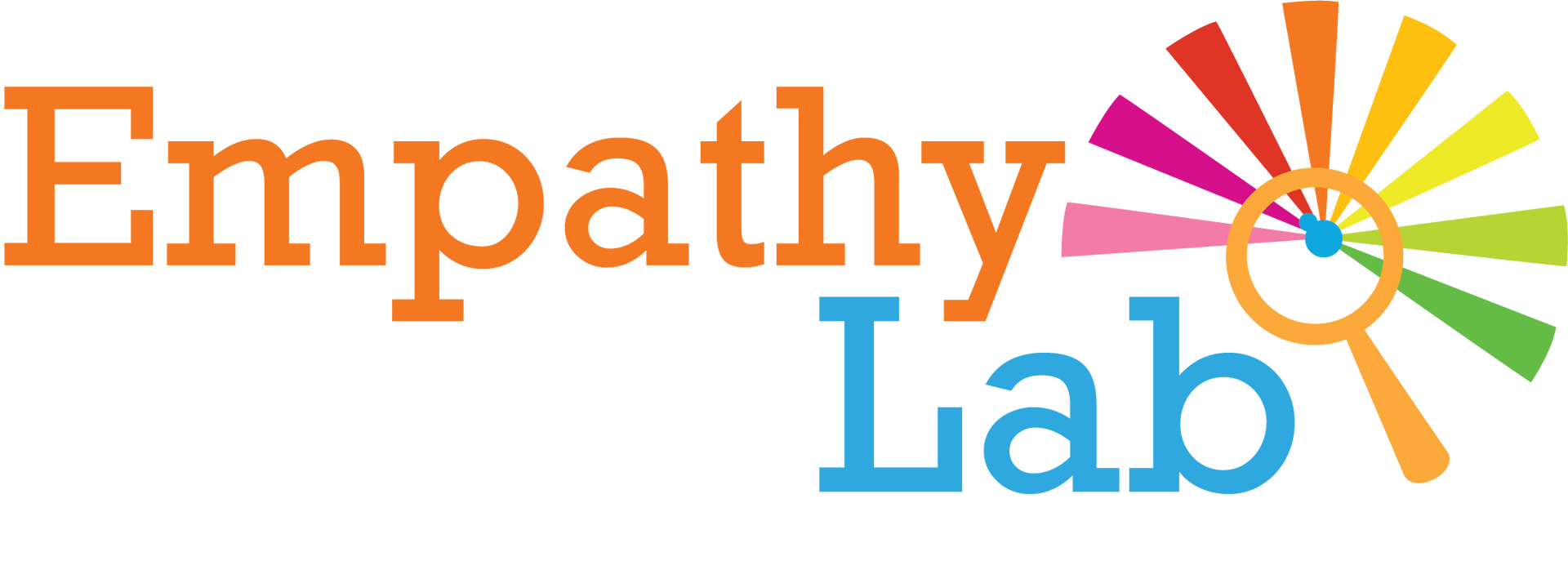EMPATHYLAB AT #IMAGINEFEST
- By EmpathyLab
- •
- 31 Jan, 2017
- •
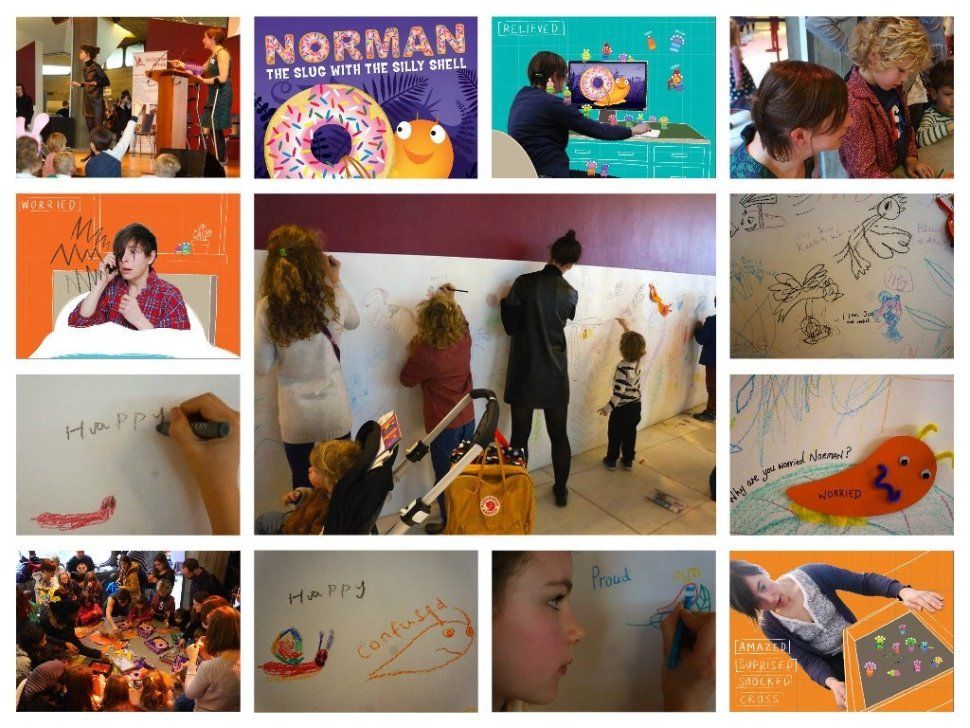
We experimented with events using stories as a springboard for families to share and explore feelings, and build children’s language for emotions. Our partners were the Poetry Library and Inclusive Minds.
Norman the Slug
The author/illustrator Sue Hendra led a session exploring the feelings of Norman the Slug, who longs to be a snail. She shared an hilarious account of the day she tried to write the story, and the disasters that befell her, including aliens eating her pencils. Along the way she named all her feelings that day – a powerful model of how to focus an author event on helping children understand their own and other people’s feelings.
We had really enthusiastic feedback from parents:
“It’s great to hear stories and discussion about feelings, and help kids feel more confident in expressing themselves. They see it’s important to talk about how they feel.”
Joanna Sholem (@BookJo): “I can’t wait to hear more about what you, Sue and your team thought of the day. The activities really engaged kids!”
Jo Byatt (@joannebyatt1) ‘This is my daughter Sienna’s artwork 🙂 (see below) we had a fab time thank you!’
Imagine Festival - Feelings Wall
After Sue’s stage session we moved to making tables and a Feelings Wall. Sue helped children make Norman the Slug, and name his different emotions as the story progressed – grumpy, confused, happy, weird, scared, sad…
One parent said: “It was interesting to explain what each feeling was through pictures; we explained two new words by drawing them.”
Sue Hendra said: “I had a fantastic time on Monday. Thank you so much for the opportunity to take part and to do something a little bit scary but very exciting.”
Alex Strick from Inclusive Minds said: “EmpathyLab is an exciting and inspired concept. People were absolutely raving about Sue afterwards – and the slugs were a stroke of genius for building on her lovely presentation. There was barely any white space left on the Feelings Wall by the end of the day.”
Rug rhymes
We experimented, through a great Poetry Library partnership, with a rug rhyme session in which the rhymes – like Row, Row Your Boat – needed parents/carers to be face to face. The session showed how families can use poems and rhymes as an extra tool for building strong, secure relationships. Afterwards, everyone involved talked about, wrote about and drew their feelings about enjoying rhymes together. These lovely pictures say it all!
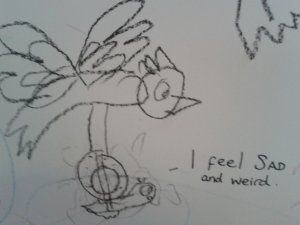
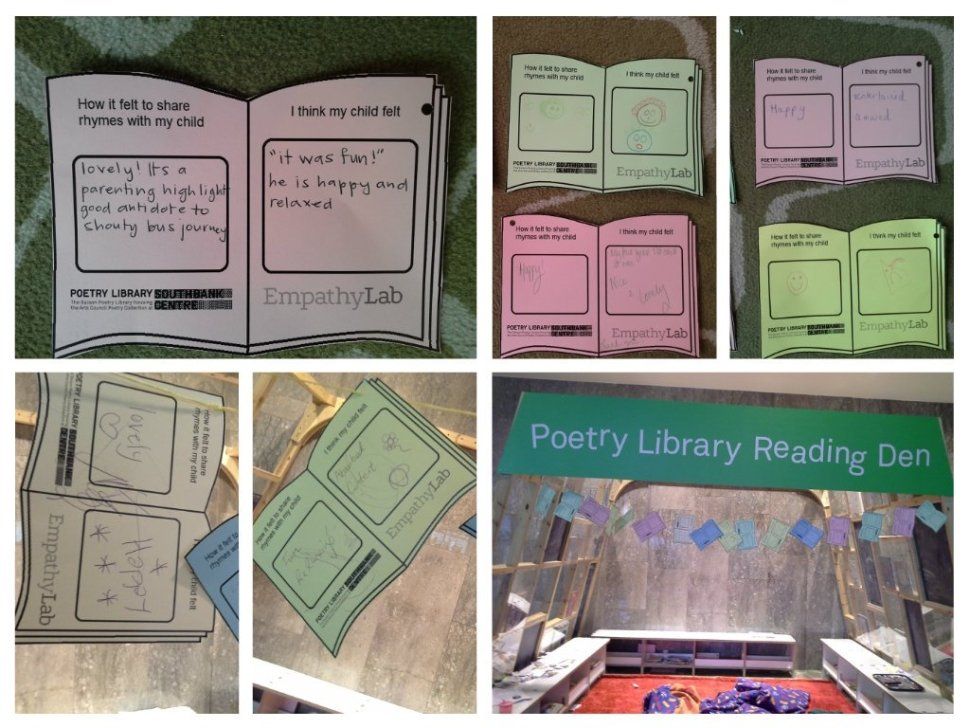
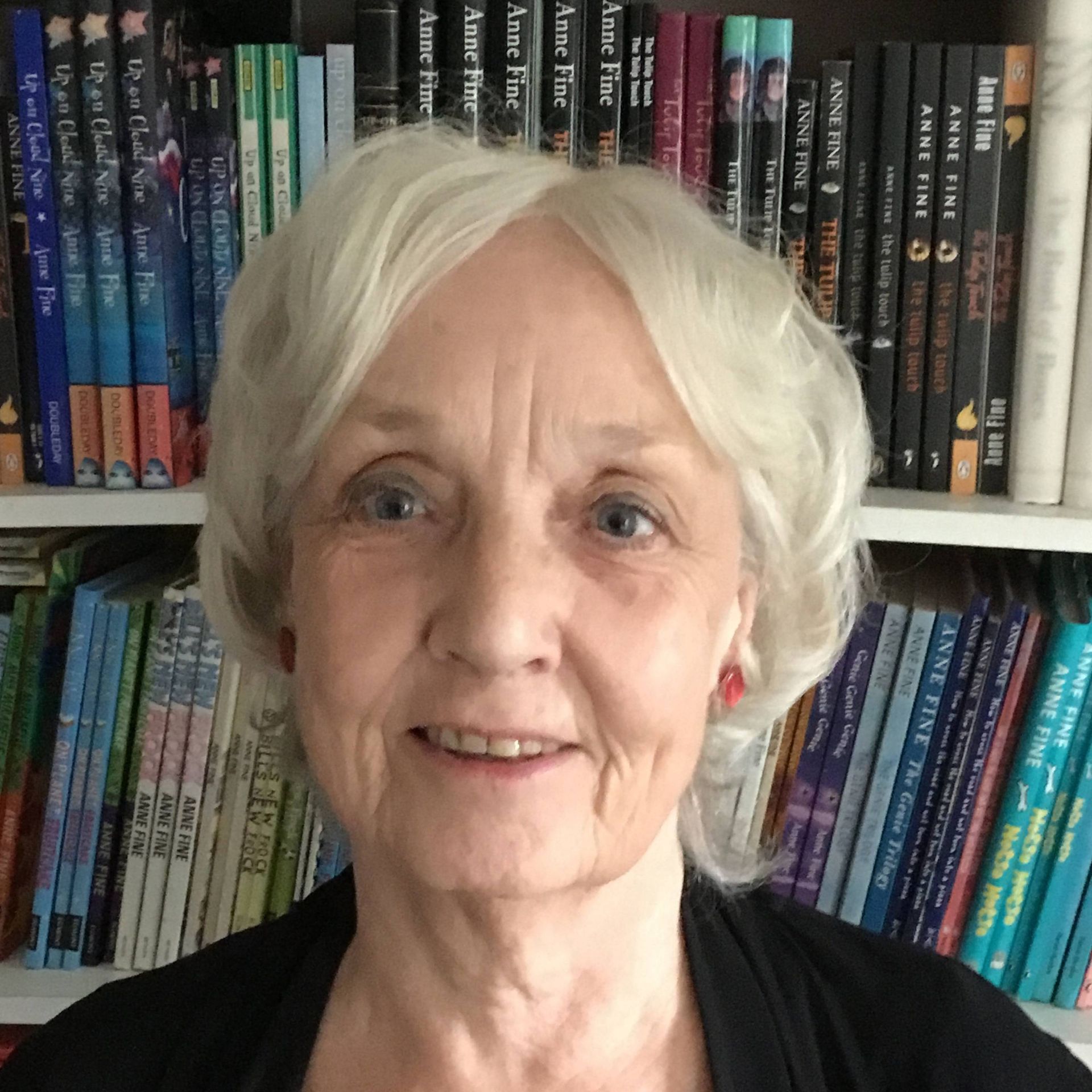
Why has the sheer importance of empathy come to the fore in recent years? Why do we care so much about a concept that had seemed to be left to itself for so long?
Perhaps because there has been so much change and upheaval for our young people in recent years, leaving so many isolated from what we might term ‘real’ contact with others. Lockdown was for many a disaster. The proliferation of phones hasn’t helped. Financially stretched families are often starved of time that can be spent in casual, easy, contact with one another.
So gaining an understanding of others from fiction has become more and more important. Children have always learned from the books and stories they are offered. From the fairy tales, children who lived in an elemental world without luxuries or social safety nets learned the virtues that were so necessary back then to survival: courage, resourcefulness, endurance, quick wits, kindness to strangers.
Our own young people live more tightly under separate roofs, and we have seen the language of books change accordingly - to Mum, the babysitter, playgroup, park, baby sister, Dad’s girlfriend, the bully, happy, worried, sad. It’s the language of relationships and emotions now, and understanding and compassion liberate. They have become the twenty-first century equivalent of Hansel and Gretel’s pebbles gleaming in the moonlight to show the way out of the dark forest.
Frank Flanagan once said good writers “structure, explain and evaluate the experience of childhood and empower the child to come to terms with it. They enable the child to lead a full life."
How? Partly by quite unconsciously increasing self-knowledge and self-awareness. A young reader can’t help but see characters in books unconsciously as if in a mirror. "I'm not like that." "I worry about that too." "I would have been braver”, “slower to catch on”, “tempted to be more mean”. And when this sense comes of no longer being the only one in the world to have this problem, or to feel that way, the child not only comes to realise that they are not alone, but also to gather insights into how other people deal with the same worries or tackle the same problems. In short, they learn, vicariously, how other people tick.
We have so many young people who, it seems, sometimes as a result of their upbringing, often simply by nature, have somehow failed to acquire the tools to begin to think about their own situation. Through fiction they can often begin, safely, to explore the more subtle aspects of life around them - an insight into someone else's life. A child can share desk space with someone else all year and yet learn less about them than about a character in one short book that’s read to them at night. I try to show this in my novel On the Wall , where, over the school year, Finley’s quite exceptional gift for tranquillity and self-acceptance in an anxiety-inducing world causes one fellow pupil after another to look more deeply into themselves, and learn how to rebalance their own way of thinking to become, in the process, calmer, happier, or more accepting.
We all want, for our young people, peace of mind. An excellent start is to explore Lauren Child's wonderful 'Staring into Space' project: https://staringintospace.me/
Then, steep them in fiction. And where better to find the
best than at the EmpathyLab itself?
You can purchase Anne's book, On the Wall,
here
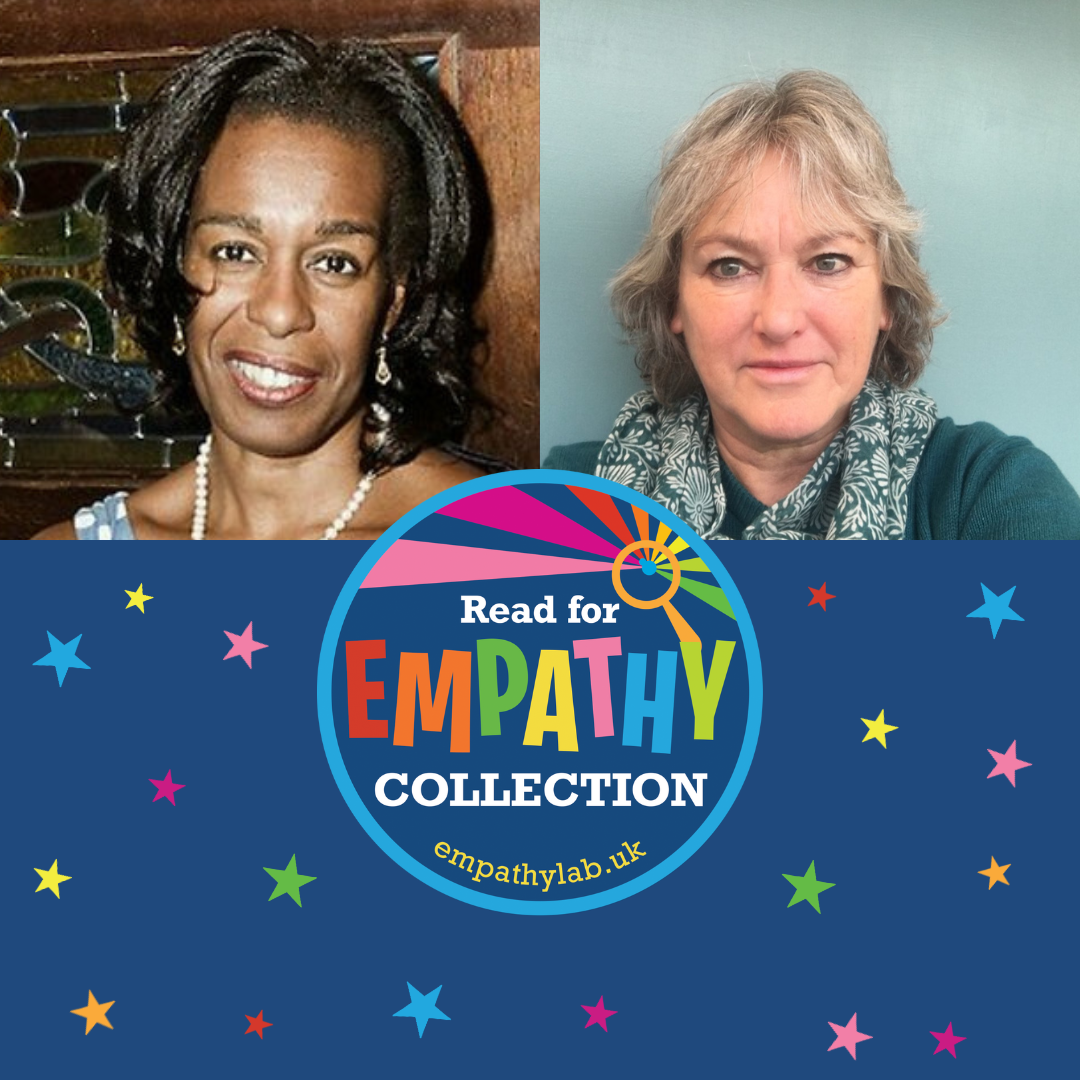
The collection consists of 65 books for 3-16 year olds, each chosen for its unique contribution in building young people’s empathy.
The primary collection for 3-11 year has 40 books; the secondary collection features 25 books for 12-16 year olds.
